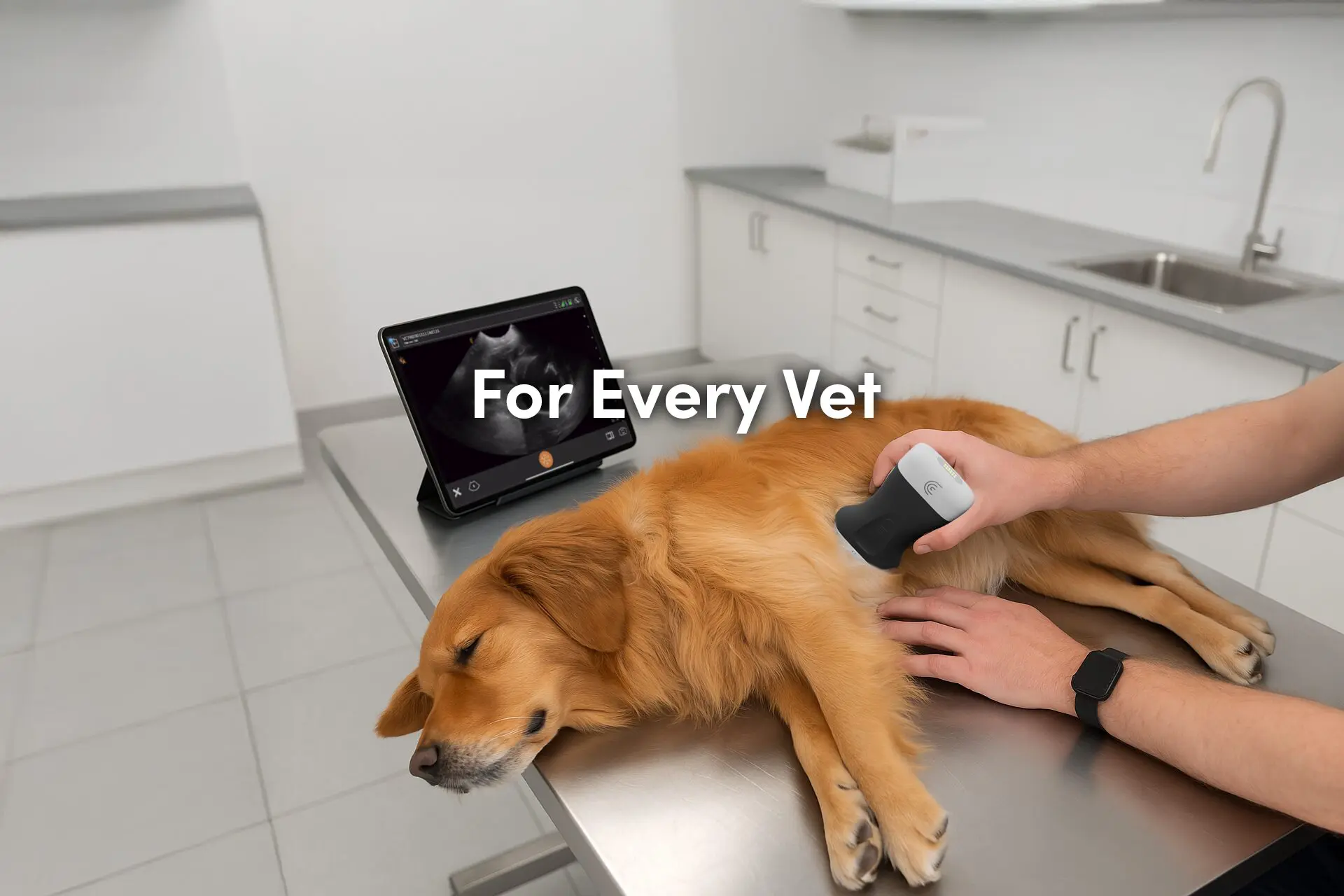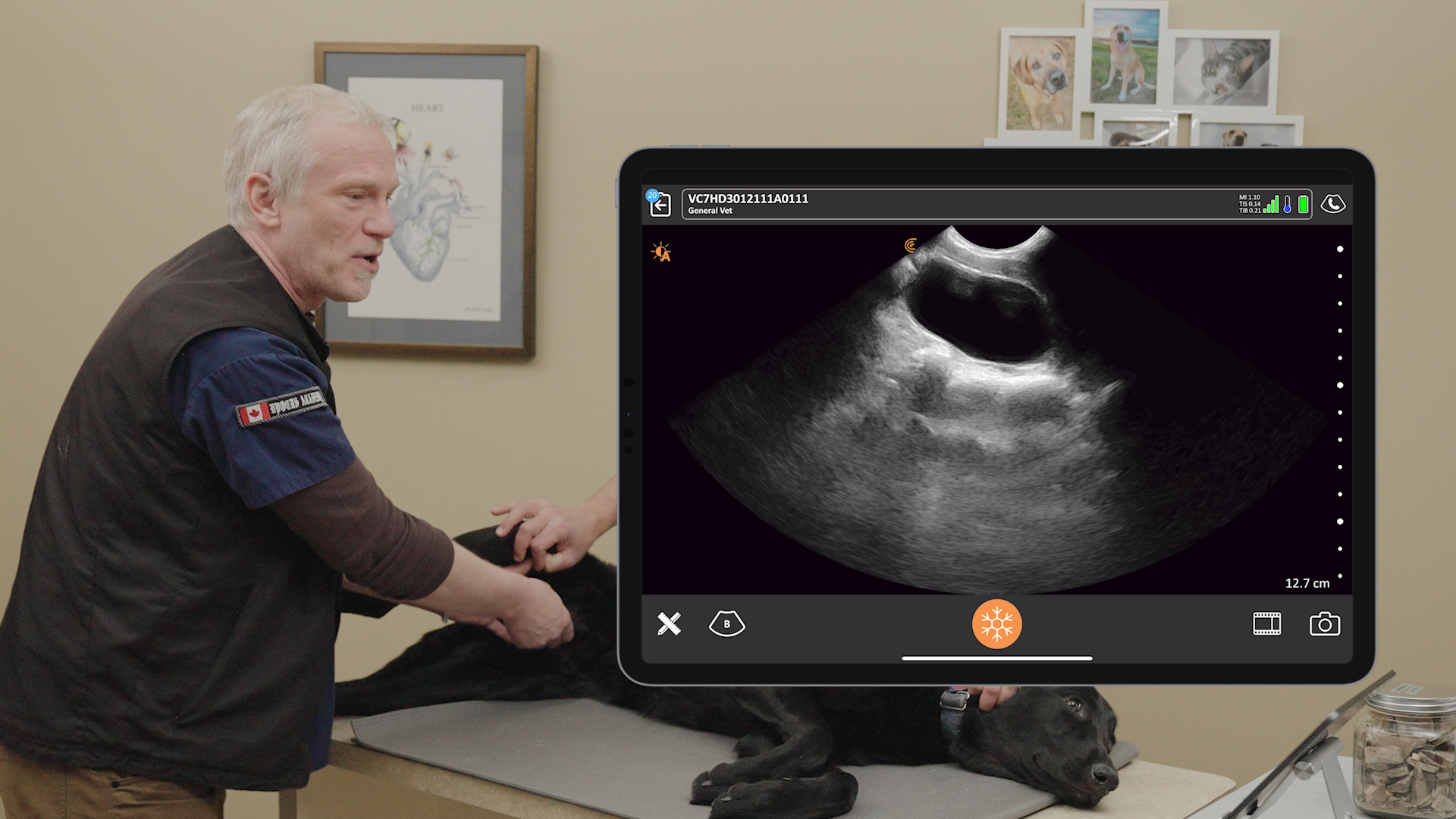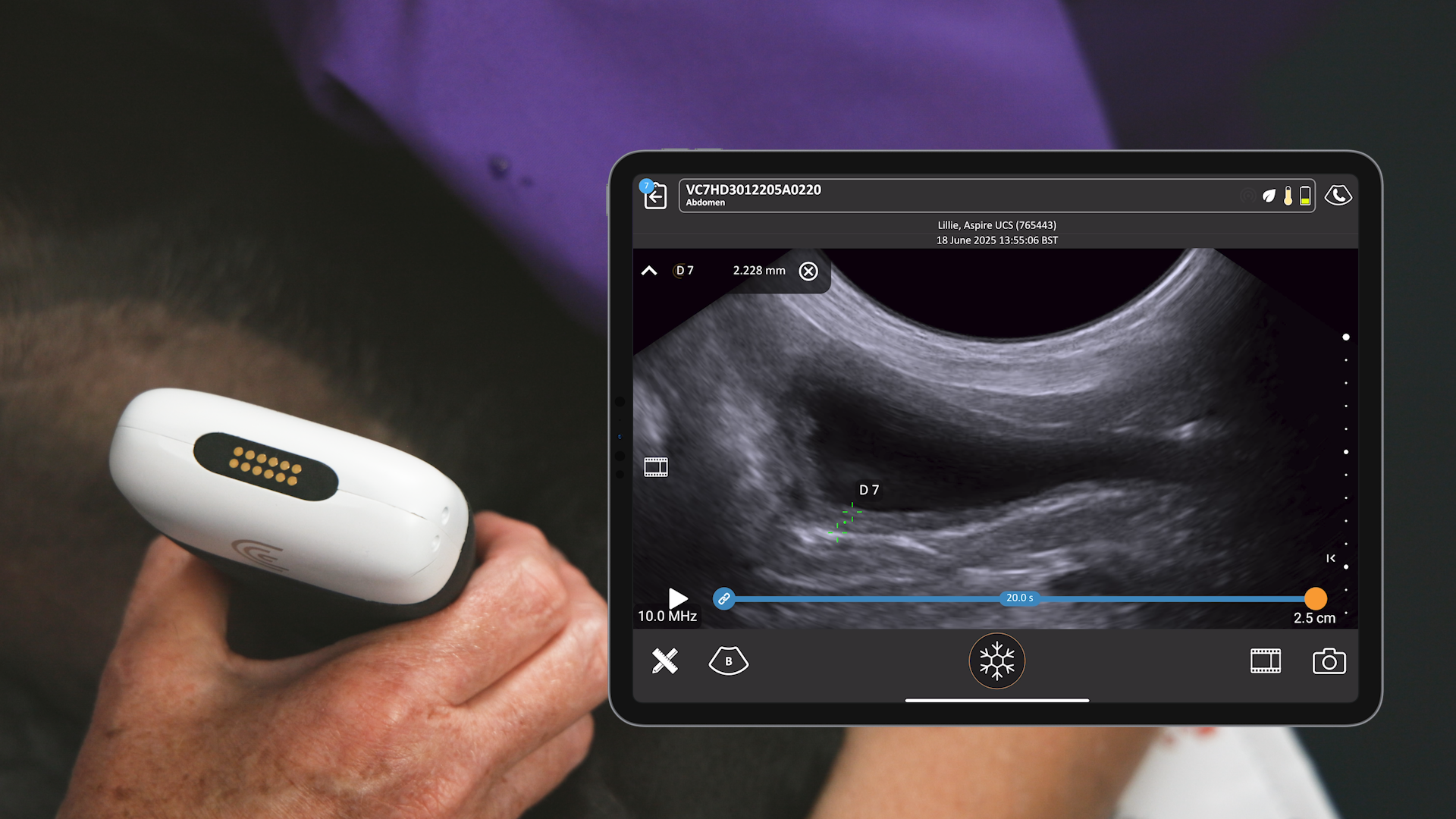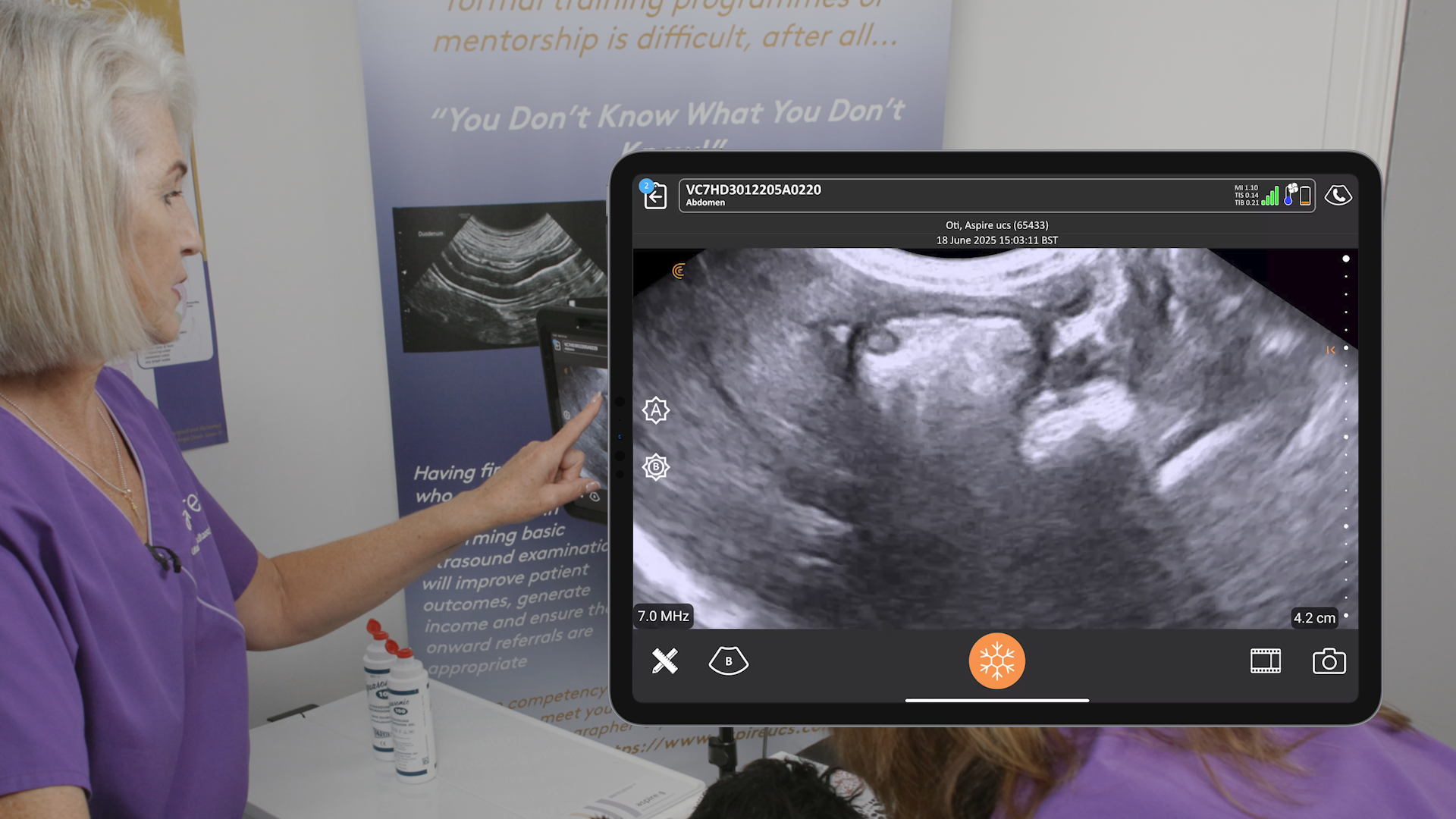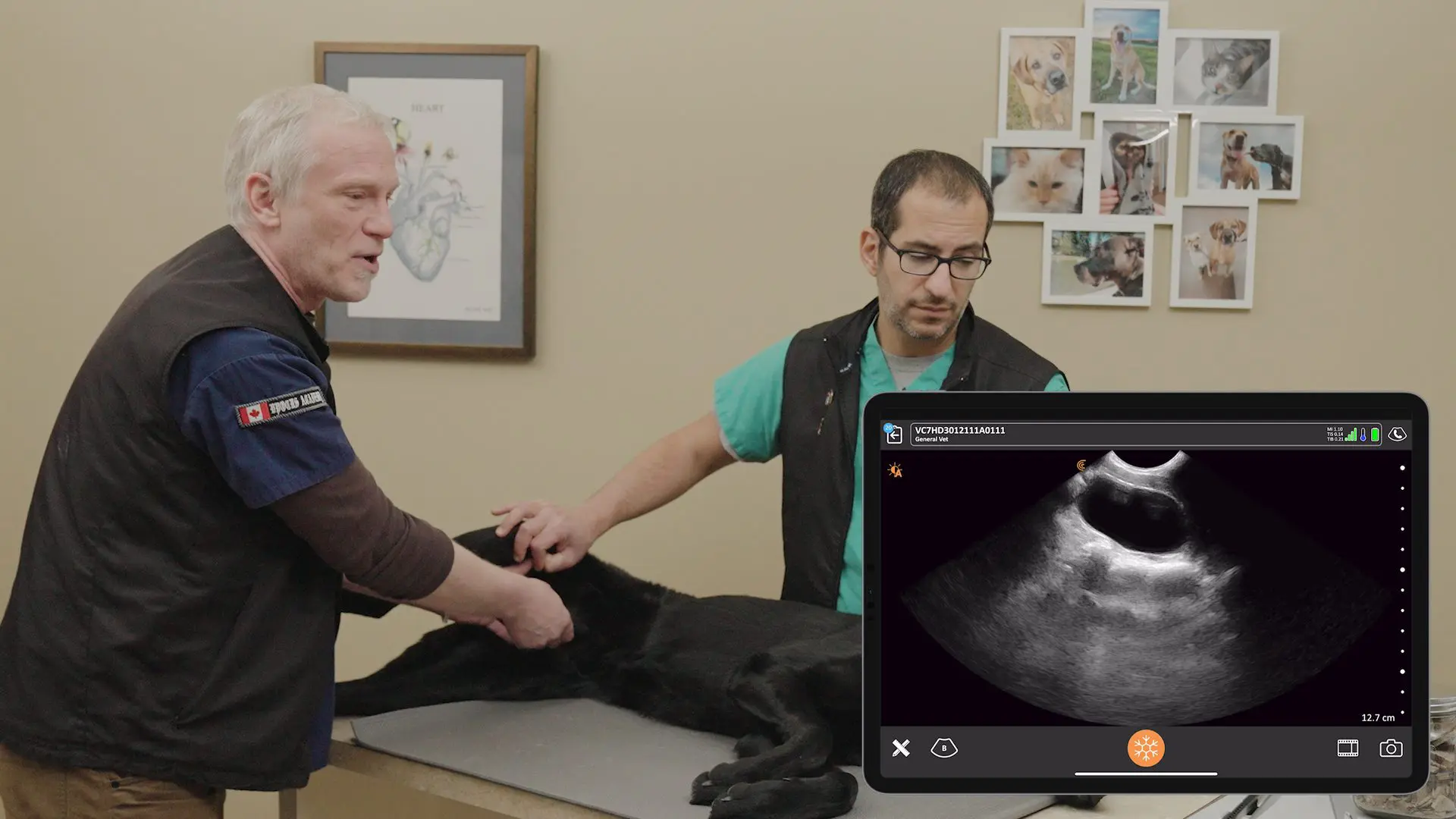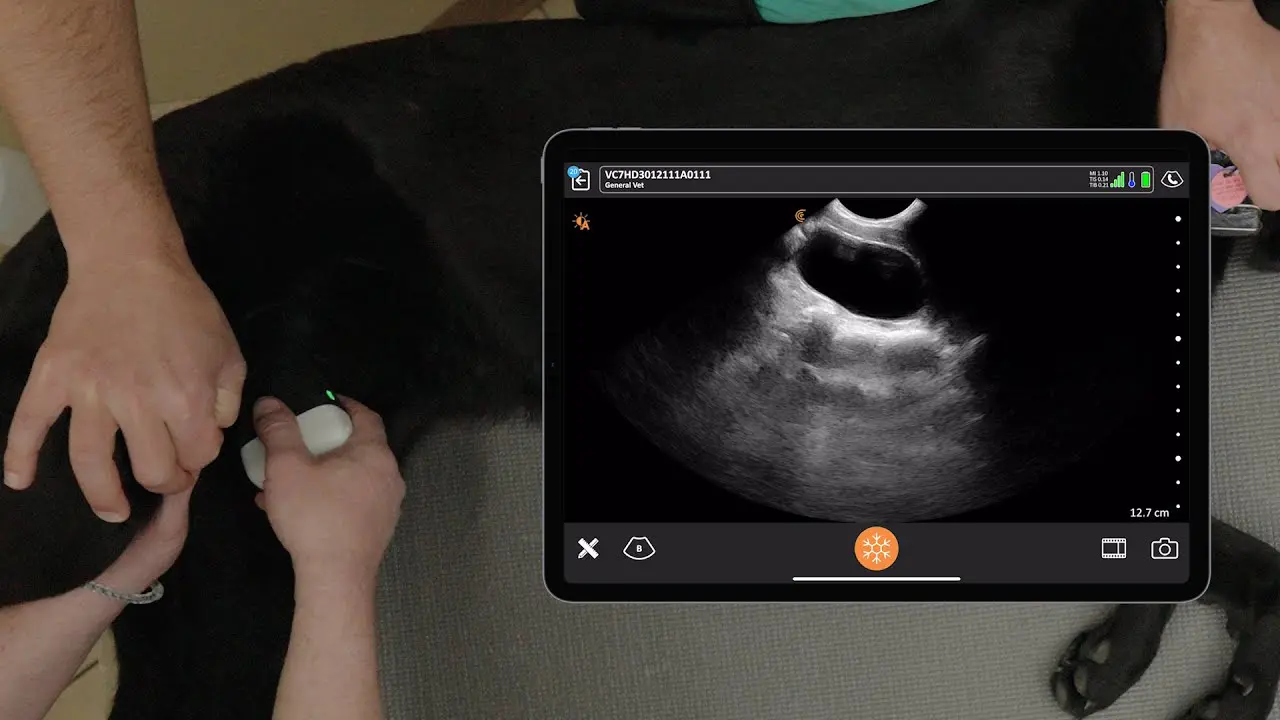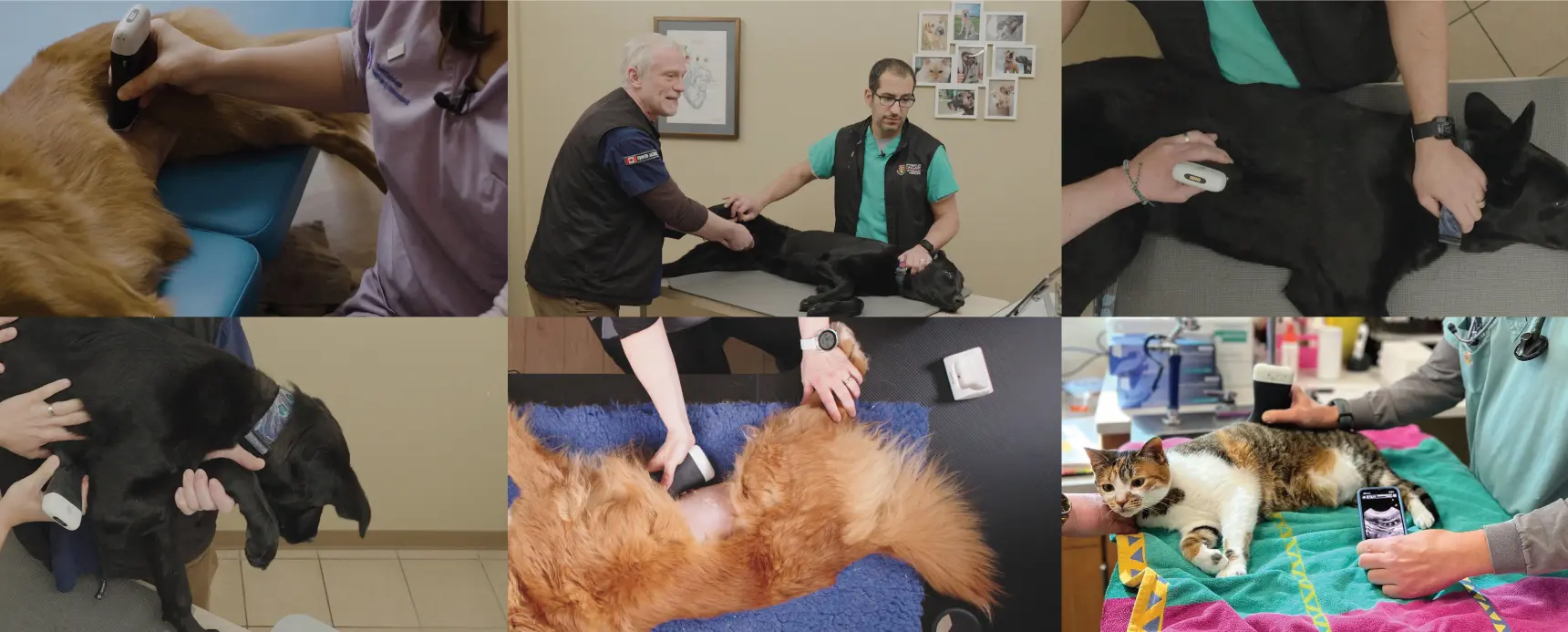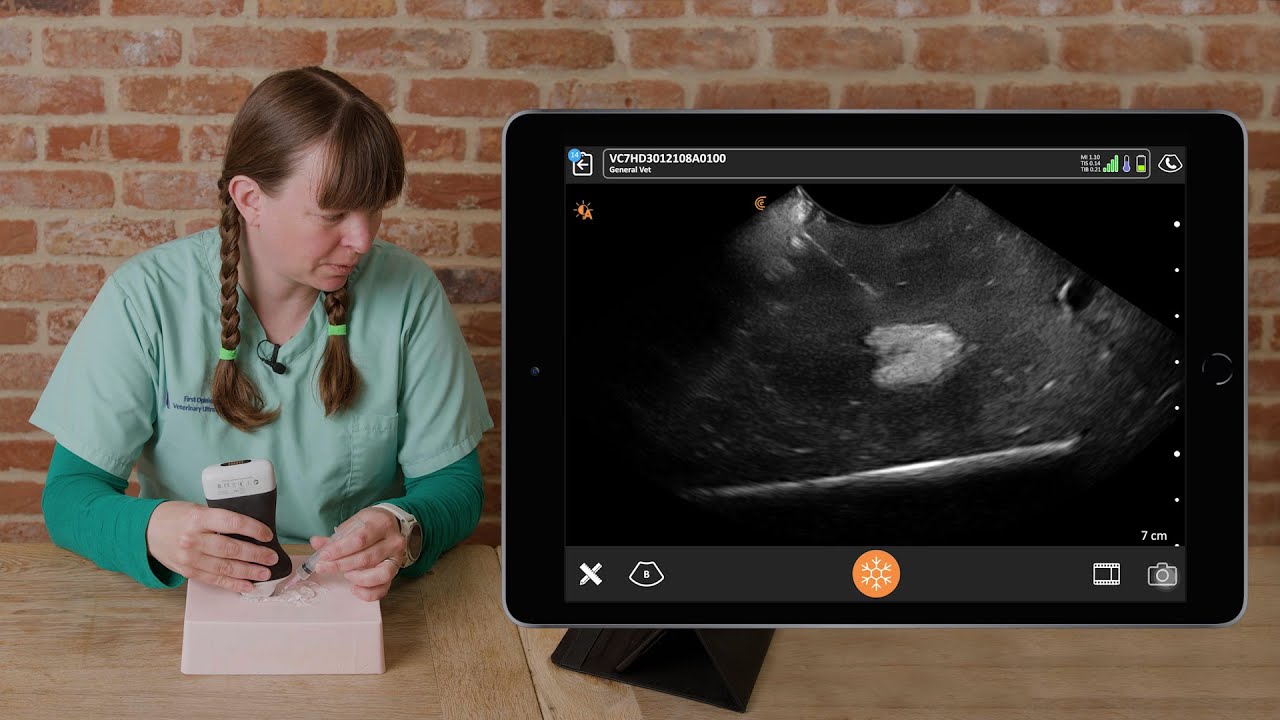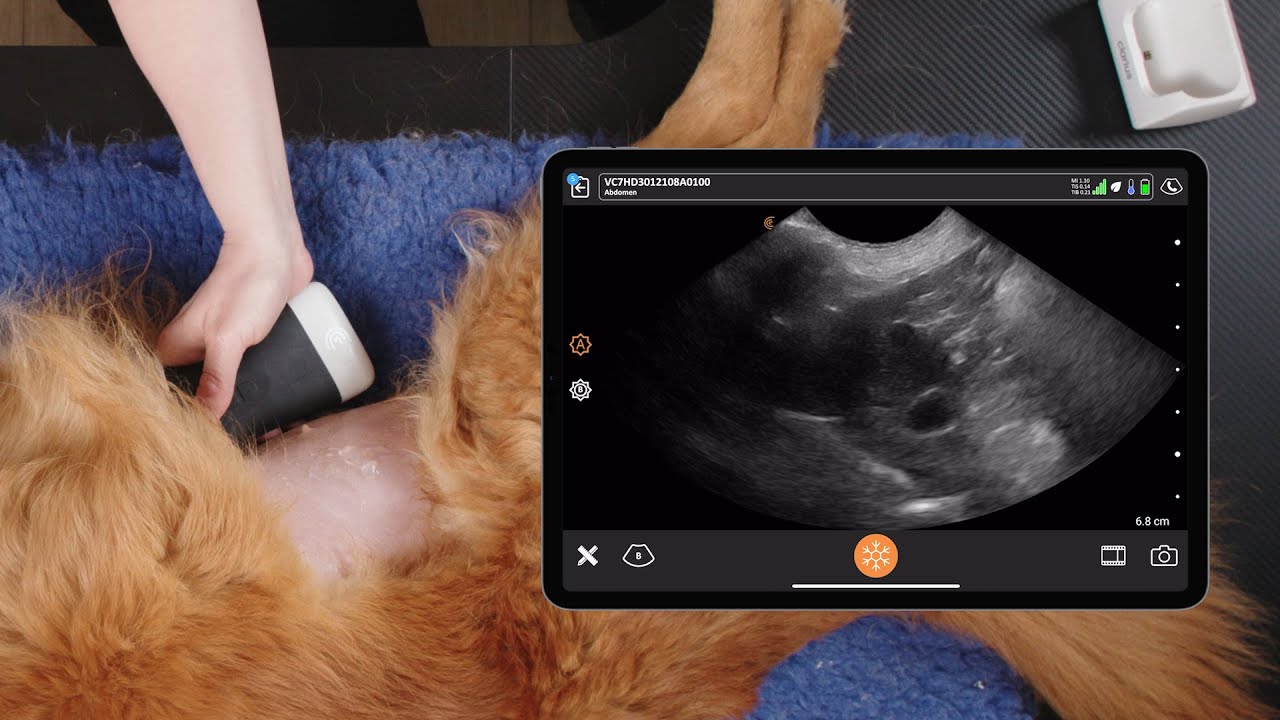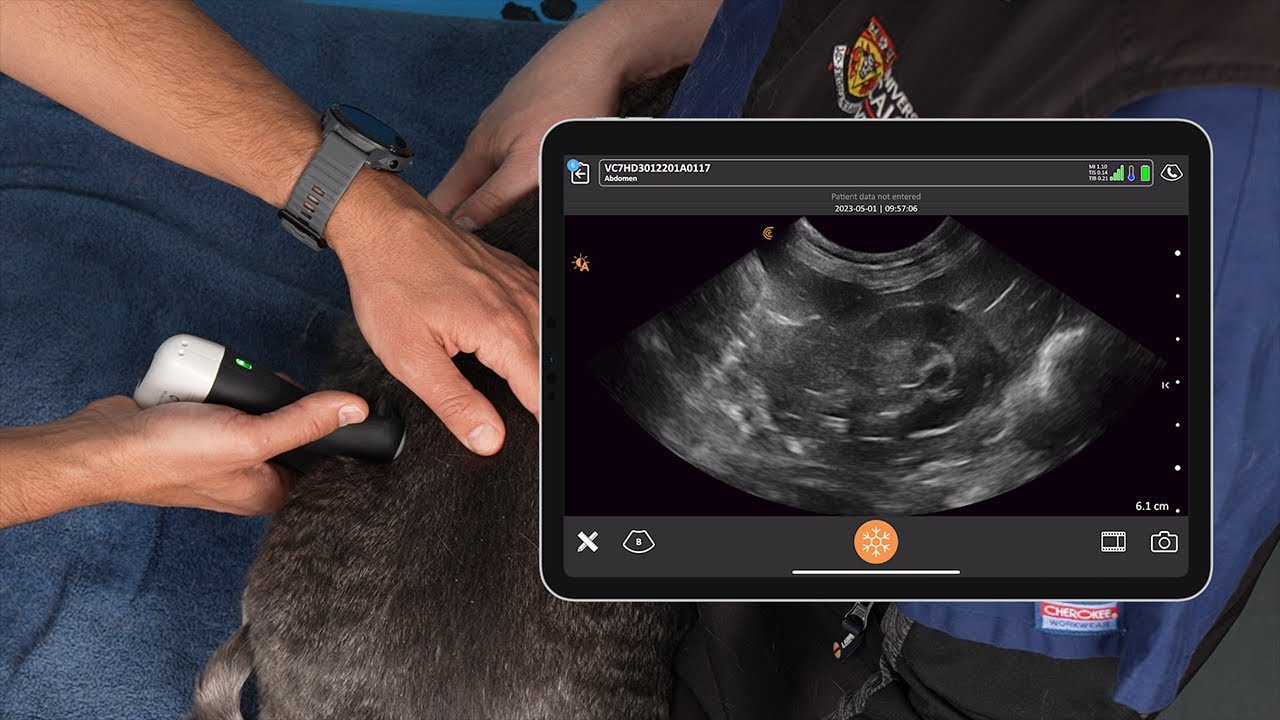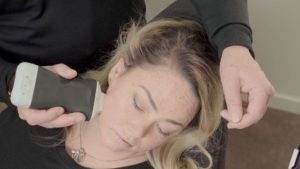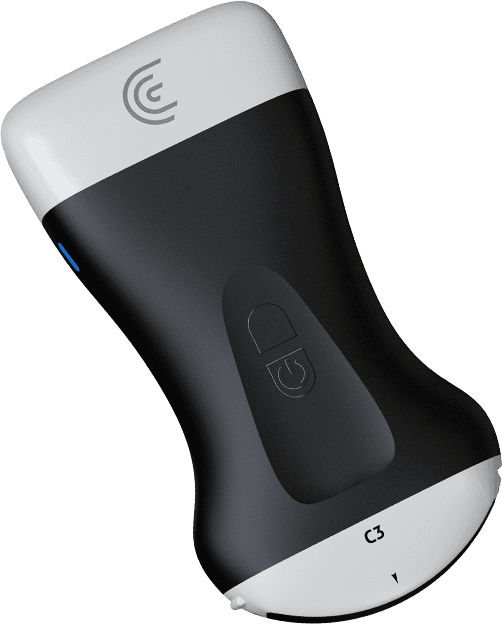Dr. Camilla Edwards, DVM and founder of First Opinion Veterinary Ultrasound (FOVU) shared this case with us recently. The dog presented with rather vague symptoms, so Dr. Edwards proceeded with a thorough ultrasound examination of the abdomen and thorax.
History: 5-year-old male-natured Cockerpoo. 5 days of being unwell, some vomiting.
Ultrasound Findings: Visible organs appeared normal, and there was no free fluid seen in the abdomen or pelvis. The caudal vena cava was slightly enlarged, but this was thought to be because the dog was being over perfused.
In the thoracic views, there was normal lung sliding at multiple levels, no pleural fluid was present. The heart function appeared normal, but the heart was beating incredibly slowly, so an ECG was performed, revealing a heart block.
Watch the abdominal and thoracic ultrasound video:
Outcome & Discussion
Complete heart block also known as a third-degree atrioventricular (AV) block, occurs when all atrial impulses are blocked at the AV node, resulting in a heart rate below 40 bpm.
Normal heart rate in dogs ranges from 60 to 180 beats per minute, in cats it ranges from 120 to 240. This type of heart block can be congenital, or associated with hypertrophic cardiomyopathy, cancer, and electrolyte disorders. Symptoms include exercise intolerance, syncope, congestive heart failure, and dyspnea.
Treatment includes medications like atropine, theophylline, or propantheline, but the most effective treatment is a permanent pacemaker.
Visit our Clarius Classroom where you’ll find several short tutorials with to teach small animal ultrasound in the abdomen and thorax.
Dr. Edwards uses the Clarius C7 HD3 Vet, which is specifically designed for clinical imaging of small and medium-sized animals. Our Advanced Veterinary Package offers more flexibility for users who need additional workflows for various animal exams.
To learn about how easy and affordable it is to add Clarius handheld ultrasound to your veterinary practice, visit our Clarius veterinary ultrasound page for product details. Or contact us today to discuss which scanner is right for your veterinarian practice.
